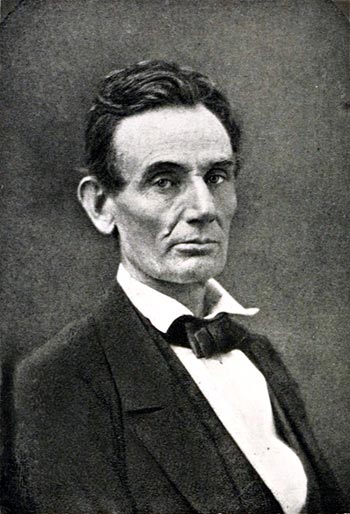
It’s even slightly cooler than the duel with broadswords. I hope this story is true or at least included in the upcoming movie. It came to Carl Sandburg by way of an anonymous Senator’s confession to Thomas L. James, copied down more fully in The Solitude of Abraham Lincoln. Here’s Sandburg’s abridged version:
Yet the talk of a Southern woman spy in the White House arrived at the point where Senate members of the Committee on the Conduct of the War had set a secret morning session for attention to reports that Mrs. Lincoln was a disloyalist.
One member of the committee told of what happened. “We had just been called to order by the Chairman, when the officer stationed at the committee room door came in with a half-frightened expression on his face. Before he had opportunity to make explanation, we understood the reason for his excitement, and were ourselves almost overwhelmed with astonishment. For at the foot of the Committee table, standing solitary, his hat in his hand, his form towering, Abraham Lincoln stood. Had he come by some incantation, thus of a sudden appearing before us unannounced, we could not have been more astounded.” There was an “almost unhuman sadness” in the eyes, and “above all an indescribable sense of his complete isolation” which the committee member felt had to do with fundamental senses of the apparition. “No one spoke, for no one knew what to say. The President had not been asked to come before the Committee, nor was it suspected that he had information that we were to investigate reports, which, if true, fastened treason upon his family in the White House.”
At last the morning caller spoke slowly, with control, though a depth of sorrow in the tone of voice: “I, Abraham Lincoln, President of the United States, appear of my own volition before this Committee of the Senate to say that I, of my own knowledge, know that it is untrue that any of my family hold treasonable communication with the enemy.”
Having attested this, he went away as silent and solitary as he had come. “We sat for some moments speechless. Then by tacit agreement, no word being spoken, the Committee dropped all consideration of the rumors that the wife of the President was betraying the Union. We were so greatly affected that the Committee adjourned for the day.”
— Carl Sandburg, Abraham Lincoln: The War Years, Vol. 2, 199–200